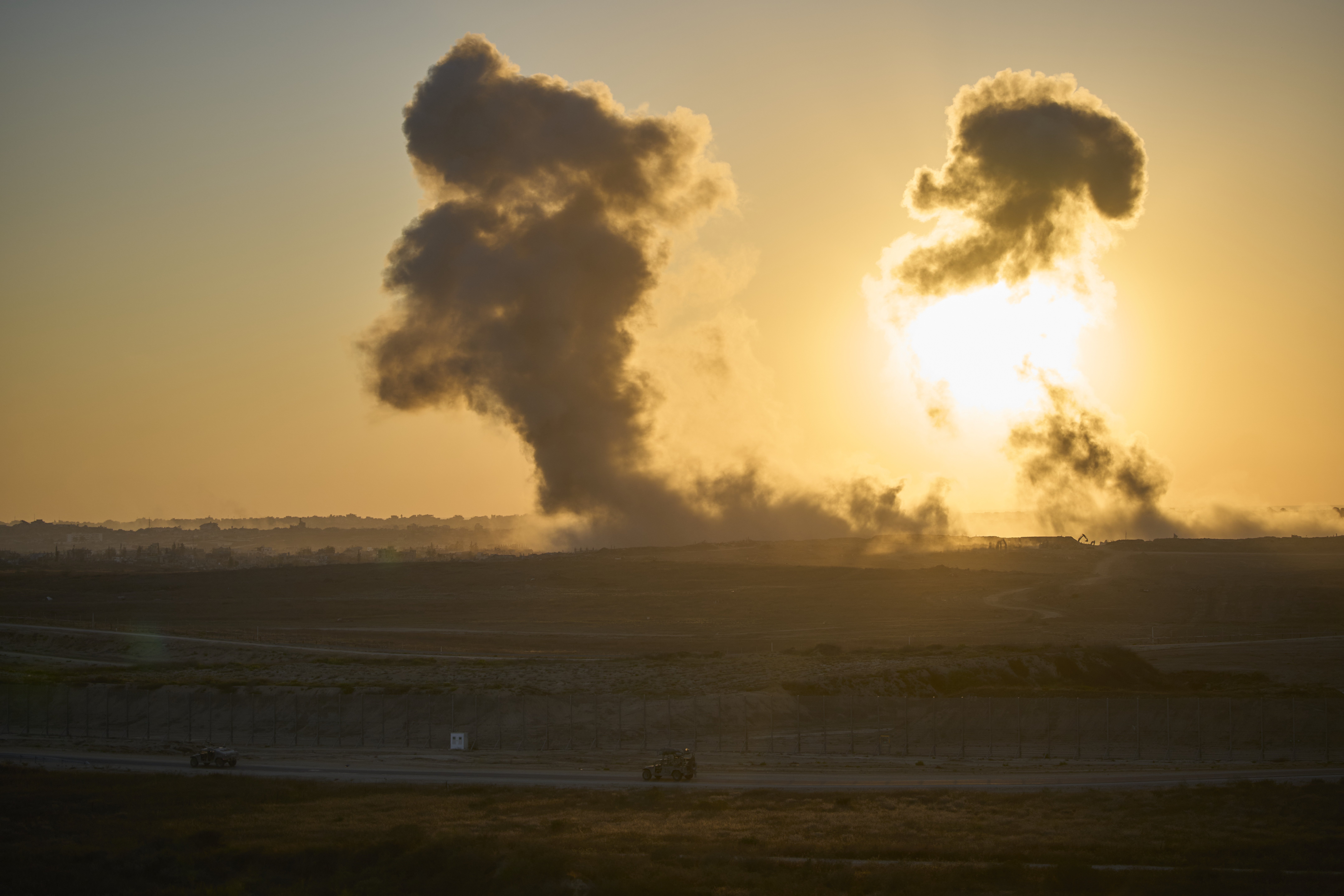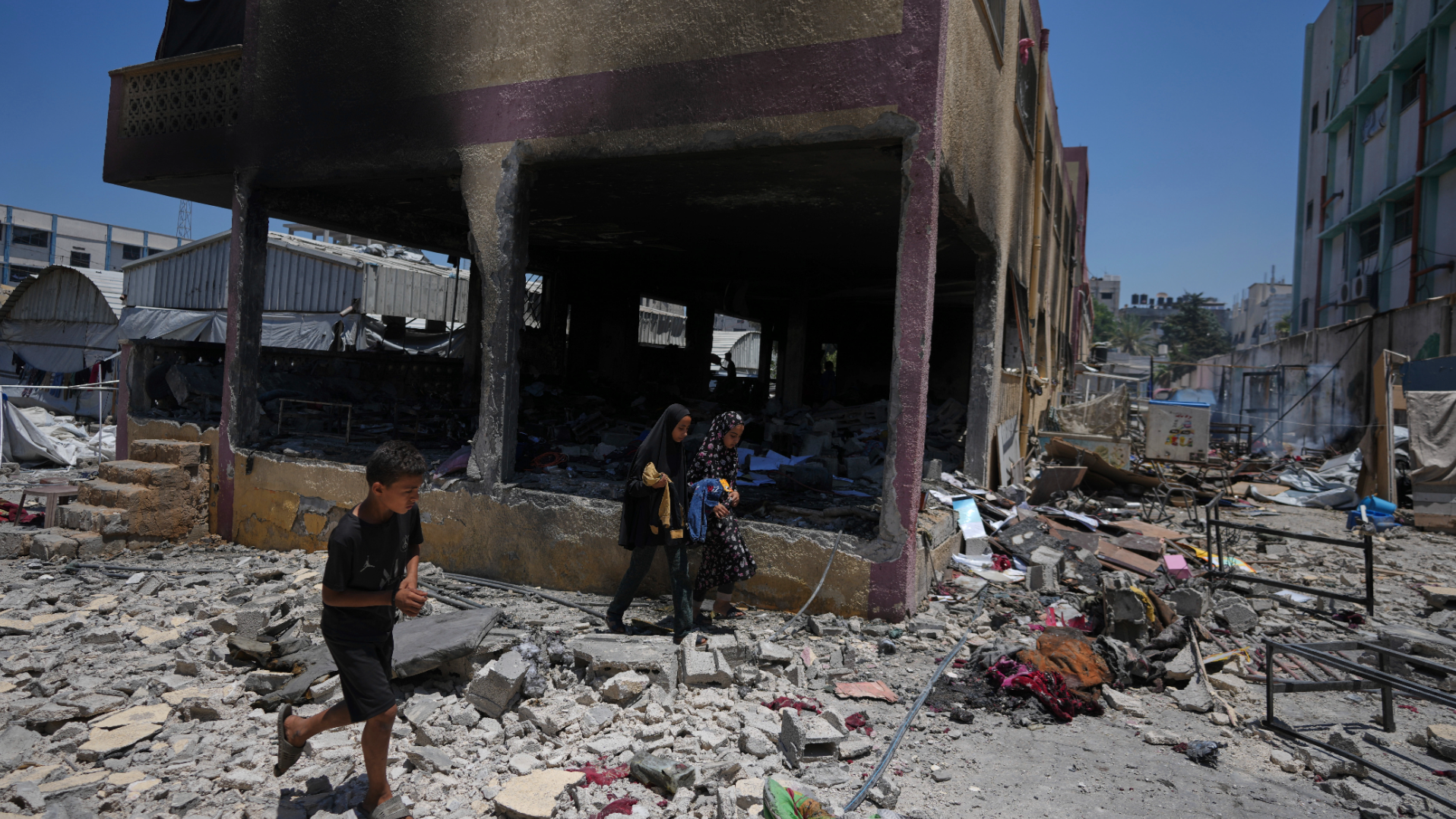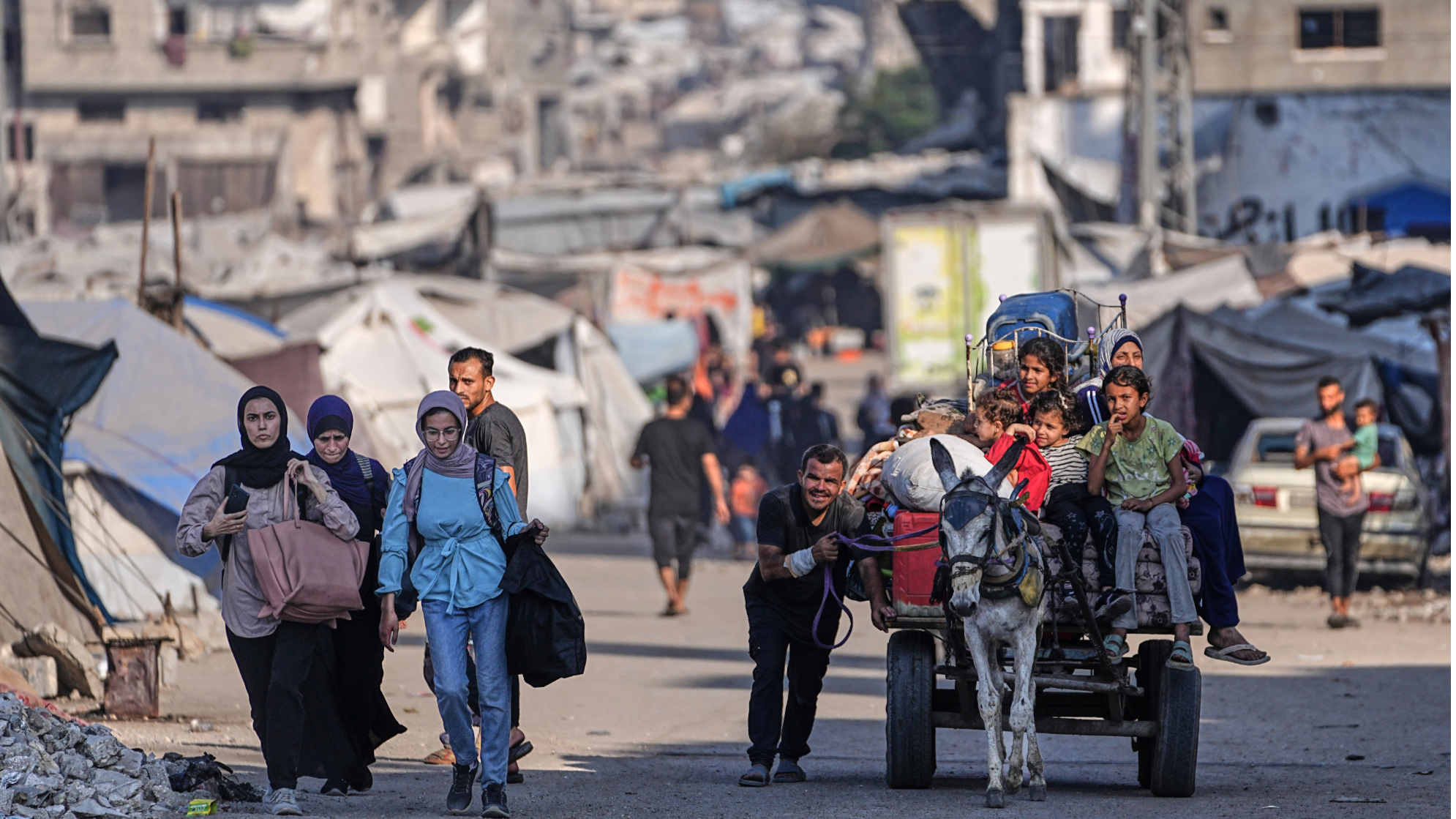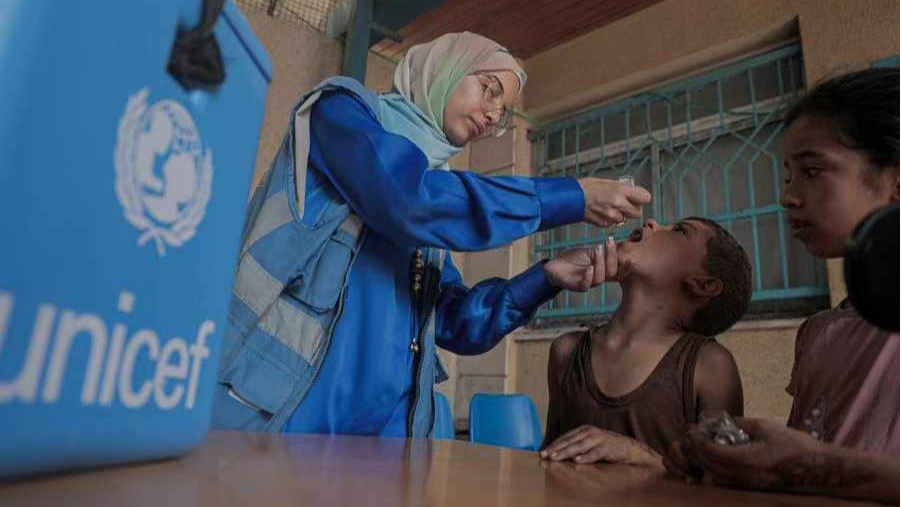
GAZA/UNITED NATIONS - Palestinians in the Gaza Strip are cautiously awaiting the outcome of a new round of indirect negotiations between Hamas and Israel, which resumed Sunday in Doha, capital of Qatar, amid international efforts to end the conflict that has devastated the enclave for more than 20 months.
According to a Palestinian source familiar with the discussions, the first session of the new round of talks focused on the mechanism for delivering humanitarian aid.
"We are waiting for an official announcement to end the war. We have endured destruction and hunger. We just want to live in peace," Sameh Abu Shaaban, a Gaza City resident, told Xinhua.
On Friday, Hamas confirmed it had submitted a "positive" response to mediators regarding an updated ceasefire proposal presented by Qatar and based on an initiative from US Special Envoy to the Middle East Steve Witkoff.
In an official statement, Hamas expressed "serious readiness" to negotiate the implementation of the proposal.
The Palestinian source told Xinhua that Hamas proposed "limited" amendments to the plan, including calls for the withdrawal of Israeli forces from certain areas of the Gaza Strip, restoring UN-led humanitarian aid operations, and ensuring that negotiations will continue beyond the initial 60-day period to reach a permanent ceasefire.
However, the office of Israeli Prime Minister Benjamin Netanyahu called the proposed changes "unacceptable." Nonetheless, Israel agreed to dispatch a team to Doha to participate in the indirect negotiations.
In Gaza, residents are watching developments closely, hoping the talks may finally lead to relief after months of conflict, displacement, and deteriorating humanitarian conditions.
Nedal Abo Ali, a father who lost two sons and four brothers in Israeli airstrikes, told Xinhua he hoped this round of talks would be different from previous ones. "We no longer have time to grieve. I don't even know where my sons and brothers are buried," he said.
ALSO READ: Hope flickers for Gaza truce as talks resume

In a shelter in central Gaza City, Abu Alaa Helles, displaced from Beit Hanoun in northern Gaza, described the war's impact. "Nothing is left. Children, the elderly, everyone has suffered. This must stop," he said.
The war has caused widespread destruction, crippled essential services, and forced hundreds of thousands to flee their homes. While the humanitarian situation remains urgent, political dynamics present obstacles to reaching a final agreement.
Netanyahu faces pressure from far-right parties that oppose any ceasefire that does not result in the disarmament of Hamas or a long-term political resolution.
Observers said international mediators might help bridge the gaps.
Mukhaimer Abu Saada, a political science professor at Al-Azhar University in Gaza, told Xinhua that Hamas's response indicates its recognition of the need to engage with international actors.
"This round appears more serious than earlier ones ... The Qatari proposal allows both sides to negotiate without making early concessions," he said.
Adnan Samara, a political analyst based in Ramallah, said that despite challenges, both regional and international actors are working to create conditions conducive to a lasting ceasefire.
Gazans continue to hold out hope for a resolution.
"Every day of war is another day of loss. We want to rebuild our lives and hope these talks will finally bring peace," Ahmed Bashir, a Gaza resident, told Xinhua.

UN' remaining fuel stock
Four months into an Israeli blockade on Gaza, virtually all the United Nations' remaining fuel stock in Gaza has been allocated to just life-saving efforts, UN humanitarians said on Monday.
"Service providers such as hospitals have been rationing supplies. But this cannot sustain critical operations for much longer," the UN Office for the Coordination of Humanitarian Affairs (OCHA) said. "The absence of accessible fuel means no ambulances, no electricity for hospitals, and no clean water."
OCHA said Israeli authorities must allow fuel to enter Gaza without delay.
The office said its telecommunications partners warned that Gaza could imminently suffer an internet blackout due to the fuel shortage.
This latest crisis, the humanitarians said, comes as civilians in Gaza face deadly violence not only from the continuing hostilities but also, reportedly, while going to retrieve food aid in the face of starvation.
OCHA said more Palestinians were reportedly killed over the weekend while attempting to access food.
ALSO READ: Hamas says delivered 'positive response' on Gaza ceasefire plan
The World Food Programme (WFP) reported that a recent survey showed nearly one in three people go without eating for days, placing more people at risk of starvation.
WFP Deputy Executive Director Carl Skau, who visited Gaza City last week, described the situation as the worst he has ever seen, according to the food agency.
"It's hard to find words to describe the level of desperation I have witnessed," Skau was quoted as saying. "People are dying just trying to get food."
Skau said that a mother told him she had gone to a kitchen hoping to find a hot meal, but fainted. There were no meals. She later went home without anything for her children. Skau said he also met a father who had lost 25 kilos in the past two months due to the scarcity of meals.

OCHA said that with the ever-increasing, massive humanitarian needs, the Israeli authorities must open all available crossings into Gaza, fully facilitate humanitarian access within the strip, and protect civilians in line with their obligations under international humanitarian law.
The office also said the Israeli authorities issued another displacement order on Sunday for parts of Khan Younis. It was the second time in two days. More than 50,000 people were estimated to be in the areas slated for displacement.
"Since the ceasefire ended in March, more than 700,000 people have been displaced, often more than once, with no safe place to go," OCHA said. "Overcrowding is particularly acute in Al-Mawasi and other coastal areas."
The UN Population Fund reported that amid food scarcity and soaring malnutrition, women continue to bear an immense burden of finding food to feed their families. Most women report depression or suffer from nightmares and anxiety.
Humanitarian teams reported continued efforts to coordinate movements in Gaza with the Israeli authorities. On Sunday, three out of eight coordination attempts were denied, hindering the ability to carry out critical operations.
"The UN calls for immediate, unimpeded humanitarian access so that aid can reach people across Gaza, including in the north," OCHA said.


